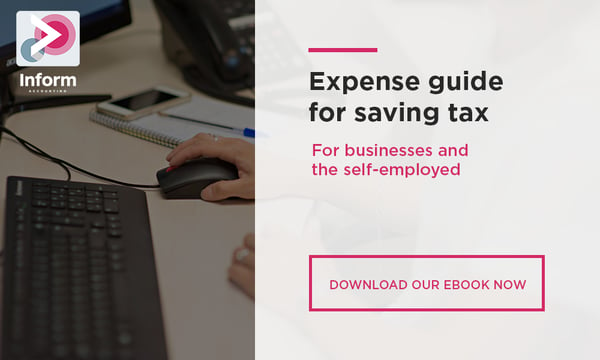BLOG
Dividend 'traps'
A shareholder/ director is permitted to withdraw monies from the company’s bank account as salary, bonus or dividend (or possibly a loan'). However, there are set rules that need followed with regard to dividends and it is easy to fall into a 'trap' if those rules are not followed.
Trap 1 - Timing
The payment date of a dividend is important. If the director has withdrawn funds resulting in an overdrawn directors’ loan account at the end of the year, dividends (or other payments /deposits) may need to be declared to clear the overdrawn account.
The relevant date for an interim dividend is either the actual date of payment or the date that the payment is placed at the directors/shareholders disposal. HMRC consider the payment date of an interim dividend to be the date of entry in the company’s books. Therefore if the company’s books are not made be up for some weeks after the payment has been made for whatever reason then this ‘timing’ trap could mean that a payment is deposited into the directors’ bank account in one tax year but recorded in the next.
With no resolution in place HMRC will take the latter date as the payment date which could mean that the director/shareholder is pushed into the higher rate tax band if usually a basic rate taxpayer. This ‘trap’ is more likely to occur with interim dividends because a final dividend becomes an enforceable debt only when approved by board resolution with the relevant date being the date of declaration at a general meeting - the date of which can be planned accurately.
Trap 2 - 'Illegal' dividend
The Companies Act 2006 requires dividends to be paid out of retained profits after corporation tax has been deducted. If the company does not have sufficient (or any) retained profits it cannot pay a dividend. Companies must ensure that either reliable management accounts or a set of specially prepared interim accounts are reviewed every time it is intended to declare a dividend to ensure that profits are available; if not available then the dividend may be illegal and must be repaid.
Trap 3 - 'Optimum salary'
National Insurance contributions (NIC) are levied on salary or earned income only and not on investment income which includes dividends. However, no NIC means no entitlement to earnings related state benefits including the state pension. Therefore a salary of at least the NIC Lower earnings limit (£520 for 2021/22) needs to be paid to ensure state benefits.
If the employment allowance is not available (which is the usual situation in respect of sole director/shareholders for example), once a salary equal to the primary threshold (£9,568 for 2021/22) has been paid, it is more tax efficient to pay a dividend to utilise the remainder of the personal allowance and the £2,000 dividend allowance.
This figure is taken because there are no employees NIC on this amount and the corporation tax reduction outweighs the employers NIC payable.. Paying the primary threshold of £9,568 will trigger an employer’s NIC liability however, the additional salary plus the associated employer’s NIC of £100.46 (totalling £828.46) will generate a corporation tax saving of £157.41 (19% of £828.46).The 'trap' is making payments as salary other than this 'optimum' amount.
Trap 4 - Diverting dividends - settlement?
Should one spouse be a higher rate taxpayer and the other a basic rate or non taxpayer, it is more tax efficient for the lower or nil rate taxpayer to receive at least some of the dividend income. This can be achieved by either creating a new class of shares (termed 'Alphabet shares') and allocating those shares to the spouse or transferring shares from one spouse to the other.
Should the 'transferring' route be taken, care is needed to ensure that the payments do not fall foul of the 'settlement’ rules'. The question here is whether by allowing the family member income from the business they are earning a PAYE salary or whether the owner-director has created a settlement and ‘retained an interest’ in the business. An ‘outright gift’ is not caught under these rules provided that the gift carries a right to the whole income and is not ‘wholly or substantially a right to income’.
Need professional tax advice?
Get in touch with us today to find out how we can help keep your taxes minimised, and benefit from our expert advice.
Read more of Inform's tax blogs:




.jpg?width=1500&height=1000&name=amy-hirschi-K0c8ko3e6AA-unsplash-(5).jpg)

